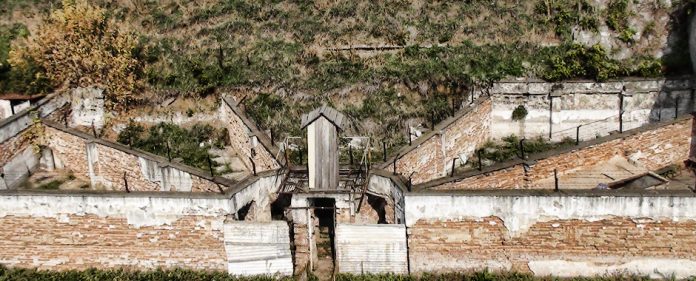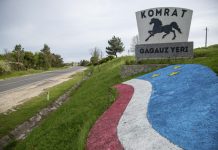Romanian archaeologists have dug up the skeletons of four political prisoners at a remote labor camp in Romania’s Danube Delta where more than a hundred died of disease, mistreatment, hunger and exhaustion more than half a century ago.
An excavation by the Association of Former Political Detainees of Romania from Aug. 31 to Sept. 4, brings the total to 54 skeletons of political detainees of the communist regime who died at the notorious Periprava labor camp between 1959 and 1964.
The area where the mass unmarked graves were found was discovered through “information … from elderly village locals and former employees of the labor camp,” the association said this week in a statement.
“The deaths at this forced labor camp were caused by hunger and cold, by a lack of drinking water and medical care as well as by accidents due to the exhausting working conditions and the detention regime,” the statement said.
Some of the detainees were shot as they tried to flee the camp, the association said.
The Periprava camp gained national notoriety half a century after it was closed down due to its commander, Ion Ficior who was in 2014 was charged with the deaths of 103 prisoners.
In 2013, Mr. Ficior told the Associated Press that only three or four people had died under his command. He contended that his former prisoners were militiamen, known as Legionnaires, who had supported Nazi Germany during World War II and deserved to be incarcerated.
“Ficior beat us every day with a wooden stick,” one former prisoner, Ianos Mokar, told The AP, adding that Mr. Ficior had terrorized inmates by “jumping over us on his white mare.”
Mr. Ficior was sentenced 20 years in prison for crimes against humanity in 2017. He died in prison 16 months later, in 2018.
He ran the camp from 1958 to 1963, a period of harsh Stalinist rule across Eastern Europe which was set up to crush dissent. The camp held up to 2,000 prisoners.
During his trial, former detainees accused him of beatings, depriving them of food and medicine, overworking them, refusing to heat their cells and forcing them to drink dirty water from the Danube, leading to widespread dysentery.
The youngest person to die was 19 and the oldest 71
Researchers have established that at least 124 detainees died at the Periprava labor camp.
Hundreds of thousands of Romanians were imprisoned or sent to forced labor camps such as the one in Periprava, some simply because they had fallen afoul of the new regime.




















